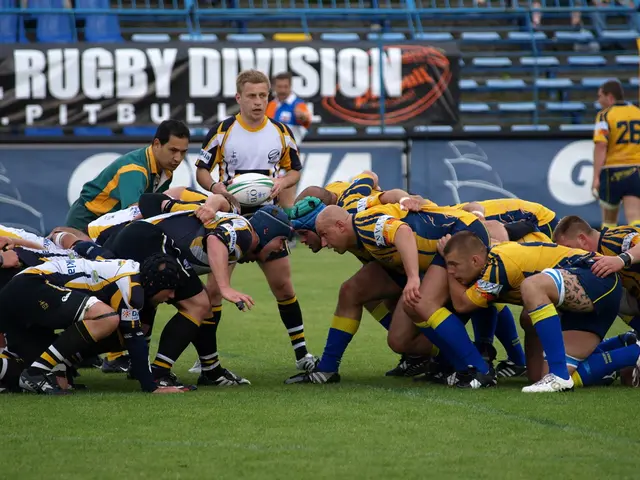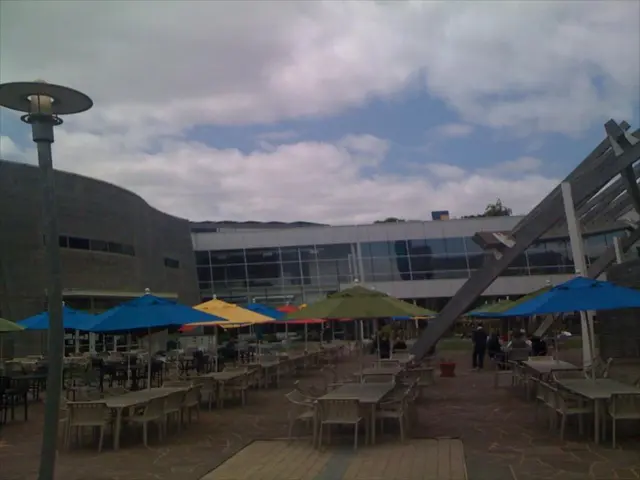A Turbulent Future for the EU: Coping with Challenges Through Adaptation
Author: Detlef Fechtner, Brussels
Advances in her progression
Jochen Sanio, former BaFin chief, once famously quipped, "The outgoing year wasn't so awful, if you compare it to the upcoming one." Ursula von der Leyen, EU Commission President, might share this sentiment. By 2025, her tenure is expected to become even more demanding. The EU faces potential conflicts with global partners transforming into competitors, or worse, adversaries—a category that could easily include Donald Trump, set to take office on January 20. If he backs his threats about imposing unyielding tariffs on Europe and the rest of the world, punitive tariffs against China, the EU will be in for a rocky ride. Not just in terms of trade, but within the Union too. For instance, China might flood the EU market with goods previously unsellable in the US due to steep tariffs, causing a potential confrontation between the Germans and French.
The EU's response to these challenges is multifaceted, combining defense mobilization, strategic policy shifts, and institutional reforms. Here's a sneak peek:
Defense Modernization
The EU is mobilizing an impressive €800 billion through loans and budget reallocations for defense modernization, with a €150 billion loan under the ReArm Europe initiative specifically boosting defense spending. A mechanism for collective defense equipment purchases and a cross-commission security forum are being established to streamline priorities, and the EU is prioritizing self-sufficiency in defense capabilities, particularly in supporting Ukraine without leaning on NATO security assurances.
Economic and Trade Adjustments
To reduce dependency on adversarial partners and promote growth that is both climate-neutral and digital, the EU is embedding its Green Deal and Digital Strategy into trade agreements. Additionally, Germany's flexibility with its debt brake enables increased defense expenditure, while EU-wide discussions on fiscal rules aim to unlock further investments.
Institutional and Foreign Policy Reforms
The Common Foreign and Security Policy (CFSP) is merging with defense priorities, though critics argue this might distract from deeper institutional reforms. The proposed 2026 budget emphasizes security, energy transition, and migration management, while demands for new revenue streams are being sought to reduce reliance on member-state contributions.
Diplomatic Recalibration
As Europe prepares for economic coercion from China and others, it is bolstering supply chain resilience and strategic partnerships. The EU has also intensified focus on prosecuting Russian war crimes and addressing crises in Gaza and the Democratic Republic of the Congo through high-level diplomatic engagement.
This dual approach of capacity-building internally and asserting itself diplomatically is the EU's strategy to counterbalance external pressures and maintain cohesion among member states. It's a bumpy road ahead, but the EU is steeling itself for the challenge.
- Ursula von der Leyen, EU Commission President, anticipates a challenging tenure up to 2025, with potential conflicts with global partners escalating or becoming adversaries, including Donald Trump, who plans to enforce stern tariffs.
- In response to these anticipated challenges, the EU is undertaking multifaceted measures, such as defense modernization, economic and trade adjustments, and institutional and foreign policy reforms.
- Under defense modernization, the EU focuses on mobilizing €800 billion for defense modernization, establishing collective defense equipment purchases, and prioritizing self-sufficiency in defense capabilities, particularly in supporting Ukraine.
- Economically, the EU aims to decrease dependency on adversarial partners by embedding its Green Deal and Digital Strategy into trade agreements, while Germany's flexibility with its debt brake enables increased defense expenditure.
- The EU is also recalibrating its diplomatic approach, focusing on supply chain resilience, strategic partnerships, prosecuting Russian war crimes, and addressing crises in regions like Gaza and the Democratic Republic of the Congo through high-level diplomatic engagement.







